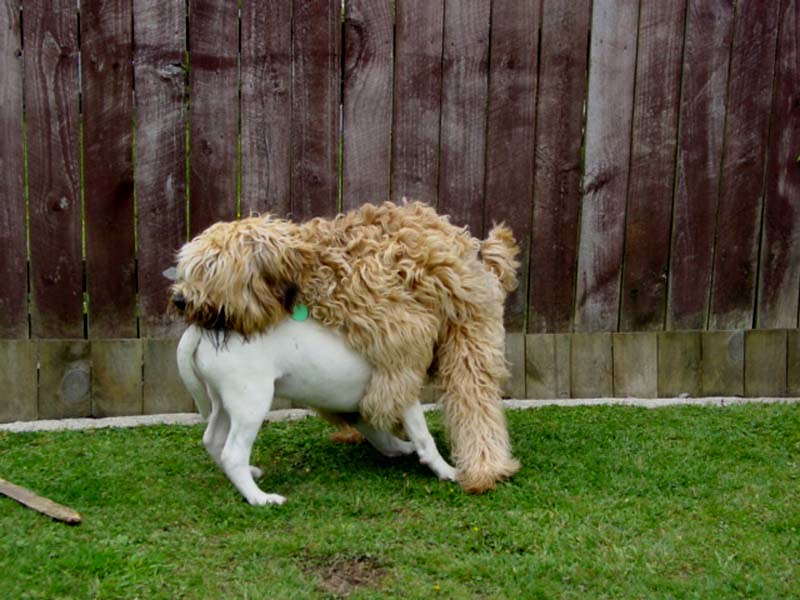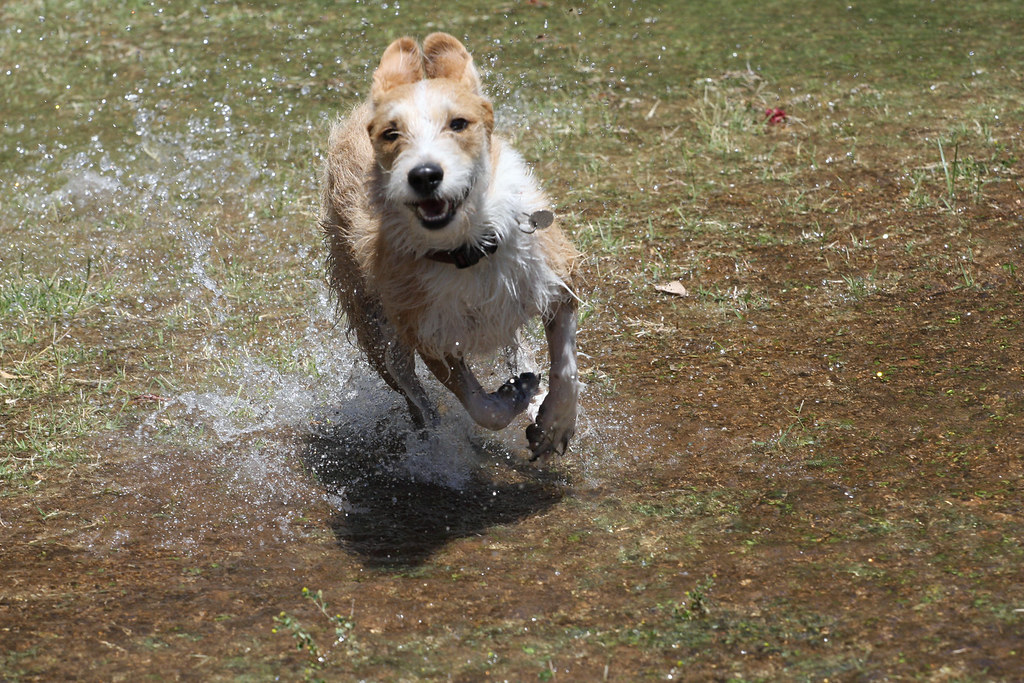How to have sex with a dog Both pets and kids have a knack for disregarding bedroom boundaries, often disrupting intimate moments with their unexpected antics. From scratching at doors to demanding attention at inopportune times, these adorable housemates can throw a wrench into romantic encounters just as effectively as toddlers.
Ever found yourself shifting positions only to lock eyes with a perplexed pooch in the corner? Or been interrupted mid-passion by a child’s urgent bathroom request? These scenarios are top-tier mood-killers, capable of derailing the intimacy crucial for healthy relationships. Fear not, though—we’ve got some advice to help you reclaim your sex life, even with your endearing yet intrusive companions around.
How to Prevent Pets and Kids from Ruining Your Sex Life
At first, I considered pooling sex advice for both pet and kid parents, like suggesting quick time-outs to distract them or calmly reestablishing boundaries when caught in the act. However, this approach faltered when it came to species-specific advice. You wouldn’t place a mat in your bedroom corner for your child, nor calmly explain to your dog about Mommy’s ‘tickle fight’ with a special friend. So, let’s divide these tips by the interloper. First up, here’s how to handle curious kids.
Lock the bedroom door : If your door lacks a lock, use footwear to wedge it shut. This makeshift barrier can buy you precious seconds to cover up if a child barges in unexpectedly. Plus, multiple shoes can effectively block any notes or messages your child might try to slip under the door.
Talk to your child about the importance of privacy and knocking first : Reinforce this boundary-setting behavior by modeling it yourself. Make a point of knocking on your child’s bedroom door and asking for permission before entering. By demonstrating this respect for privacy, you encourage them to reciprocate the same courtesy.
Have a plan B :
If your child under 5 unexpectedly walks in on you during intimate moments, it’s crucial to stay calm. Offer a simple explanation like ‘We’re hugging,’ ‘We’re getting ready for bed,’ or ‘We’re preparing to take a shower,’ and kindly request privacy. You might say, ‘Please close the door. We’re having our private time. In five more minutes, I’ll play Bingo with you.’
Sexual noises can unsettle children, so if they do enter, maintain a composed and reassuring tone to reassure them that everything is okay. For older children, consider having a more detailed conversation later, using age-appropriate language and concepts. However, initiate this discussion when everyone is clothed, showered, and relaxed—transitioning from ‘sex-goddess mode’ to ‘teachable-moment mode how to have sex with a dog.

Make sex boring :
Many couples opt to establish clear boundaries in advance regarding their private time, incorporating it into the family routine. For instance, saying, ‘We’re going to have our private time now. Would you like to play with your toys or watch a show?’
Kids often lose interest if a closed bedroom door becomes a normal part of life. They take their emotional cues from you—if you remain calm and matter-of-fact about it, their curiosity tends to wane. (But remember, just because you make sex seem mundane to them, doesn’t mean it will be boring for you!)
When you and your partner engage in intimate activities, pets like cats and dogs might take a keen interest—not out of perversion, but due to the heat, smells, and excitement. They may want to be part of the action, leading to an unexpected audience or, worse, a furry face with teeth uncomfortably close to your private parts.
Concerning pets and a healthy sex life, you must weigh whether you’re more worried about your animal’s well-being or your own pleasure. Some pet owners fear they may scar their pets by engaging in intimate acts in their presence. For instance, sexual activity between human owners might trigger anxiety or territorial behavior in dogs. In such cases, consulting a trainer or animal expert for guidance may be necessary. However, for most pet owners, the primary concern is avoiding distractions during intimate moments. Their pet’s presence can hinder comfort levels, pleasure, and performance. Here’s how to manage libido-killing pets:
Stop co-sleeping: Train your dog or cat to sleep on their own bed on the floor if they’re accustomed to sharing your bed. While this process may take a few weeks, the effort will pay off. Create an enticing designated space with special treats and toys to encourage them to enjoy their own sleeping area.
Have more sex: With time, the novelty of your intimate activities will wear off for your pets.
Kick out the cat: Nobody wants a cat judging their best sex moves. If your cat stands at the door, scratching and meowing to get back in, relocate them even further, perhaps to the bathroom. Provide them with a toilet paper tube to ease the separation anxiety. Alternatively, simply turn up the music to drown out any distractions.
Emergency diversions: When spontaneity strikes, shuffling animals around may not be feasible. Keep a chew toy in your bedside table alongside whatever else you might store in your special drawer.
Maintain your sense of humor. If your sexually curious dachshund interrupts your intimate moments, try to make light of the situation with a joke and then move on. However, if constant interference from your pet becomes a significant issue for you or your partner, or if one partner feels that the pet’s well-being takes precedence over their own, it may be necessary to have a more serious conversation.
How To Keep Your Dog From Ruining Your Sex Life
Picture this: you finish your glass of wine, exchange seductive glances with your date, and things start heating up as you head towards the bedroom—completely lost in the moment… until your dog starts whining on the bed.
From room-clearing farts to crying and pawing at closed doors, or even jumping up on the bed during the act, dogs have a knack for turning sexy time into anything but. Feel like your pooch has been a mood-killer? Here are some common doggy issues that can dampen the sexual vibe—and how to address them!
1. Your Dog Feels Like “Playing” With You And Your Partner
Hey there! Mind if I join in and awkwardly lick your foot?”
That’s probably not the kind of “trying something new” you had in mind for the bedroom.
Many dogs feel entitled to be on your bed, especially if they’re accustomed to sleeping in it with you. To them, it’s their bed too. So, when they see you and a partner getting playful, they might assume they’re invited to join.
To address this behavior, start training your pup to get off the bed when instructed. Provide them with their own designated space—ideally, their own dog bed—and reward them for going there when commanded.
If they jump up during intimate moments, calmly redirect them to their designated spot and reward them. Offering a toy or appropriate treat to keep them occupied can also help distract them.

2. Your Dog Cries If They’re Not Allowed In The Same Room
Hey there! Mind if I join in and awkwardly lick your foot?”
That’s probably not the kind of “trying something new” you had in mind for the bedroom.
Many dogs feel entitled to be on your bed, especially if they’re accustomed to sleeping in it with you. To them, it’s their bed too. So, when they see you and a partner getting playful, they might assume they’re invited to join.
To address this behavior, start training your pup to get off the bed when instructed. Provide them with their own designated space—ideally, their own dog bed—and reward them for going there when commanded.
If they jump up during intimate moments, calmly redirect them to their designated spot and reward them. Offering a toy or appropriate treat to keep them occupied can also help distract them how to have sex with a dog.
3. Your Dog Gets More Attention From Your Partner Than You Do
Your partner and your dog getting along famously? Fantastic. But if your beloved seems more interested in playing with the pup than snuggling with you, it can put a damper on things.
If you feel like a dog, whether yours or your partner’s, is interfering with your sex life, it’s crucial to communicate this to your partner. While it may be an uncomfortable conversation, it’s a necessary one.
Consider establishing designated ‘alone time’ where the dog is in a separate room, in their crate, or out with a dog walker, ensuring you have quality time together without distractions. And while it’s enjoyable to include your pup on outdoor excursions, make a point of setting aside dates where they stay home as well.
4. Your Dog Hates Your Partner
Some dogs require time to adjust to a new partner. It can be challenging for them to accept that your attention is now divided, leading to behaviors like inappropriate chewing, excessive barking, growling, or even biting.
If your dog seems to harbor genuine animosity toward your partner, it’s crucial to address the issue through dedicated training or professional intervention.
A trainer can assist your dog in understanding that they don’t need to be in a constant state of ‘protection’ and that your partner is a trusted companion. While hiring a professional may come with a cost, if your partner is someone you envision being in your life long-term, it’s a worthwhile investment.

5. Your Dog Gives You And Your Partner The Most Judgmental Look
Few things shatter post-coital bliss like the bewildered expression on a dog’s face after inadvertently witnessing their human engage in intimate activities.
Instead of feeling guilty, remember that you’re a human with valid needs. Your actions are healthy and normal, and your dog is none the wiser about what transpired.
To sidestep such scenarios entirely, consider keeping your dog out of the room during intimate moments and rewarding them for good behavior afterward how to have sex with a dog.
Has your dog ever disrupted your sex life? Share your experiences and how you addressed the behavior!
Does your dog have the Sex Factor?
In my previous blogs, I’ve discussed the challenges of owning an un-castrated teen dog, particularly focusing on Border Collie Guinness and his hormonal urges. These behaviors, often intensified during a testosterone surge between 7-15 months of age, include frantic leg cocking, urine marking, intensive sniffing, licking, and leg humping.
While neutering Guinness remains an option, I’ve chosen to explore alternative methods to manage his behaviors. One key approach involves restricting his access to areas where other dogs have urinated, minimizing his response to internal messages prompting scent marking. Additionally, we’ve trained in less populated areas to reduce distractions and maintain focus, crucial for future competitions in dog sports.
Leg humping, a behavior stemming from excitement and frustration, has been addressed with correction and diversion techniques, such as providing a time-out after any attempt to hump. Furthermore, Guinness’s interactions with other dogs have been limited to prevent humping, excessive sniffing, or overly submissive behavior, particularly with adult males who may perceive him as a threat.
While neutering would simplify matters, I’ve chosen to invest time and effort in managing Guinness’s behaviors, acknowledging that this approach requires constant vigilance and organization. Despite the challenges, I remain optimistic that with successful management and training, Guinness will transition into a well-behaved adult dog, leaving behind the habits we’re working to curb.
In the end, while Guinness may currently hold the title of “Sex Factor 2012,” I look forward to the possibility of a more relaxed future once he undergoes neutering, paving the way for a smoother journey for future teenage dogs.




